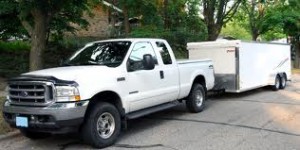GEL provides frac sand testing services to the oil and gas industry out of the Lonquist materials testing lab in College Station, Texas. You get fast and accurate service, with some of the world’s best customer service. Our specialty is “busting our butt” to get you results in a short amount of time. We provide a comprehensive report with each test.
See below for our option of providing an onsite mobile proppant testing laboratory.
You can order services today. Just visit the contact page and fill out the form or send us a fax or an email. We will then contact you to see how we can best serve you.
Frac sand testing services we provide include:
- Material Processing – Initial washing (required of all sand samples) of the proppant sample, and any additional processing (like crushing of sandstone samples). Initial washing is required of all frac sand samples.
- Full API RP 19C Testing – Full API analysis including processing, sieve analysis, ISO bulk density, ISO sphericity and roundness assessment, acid solubility, turbidity, and ISO crush K-Factor determination
- Sieve Analysis – This is a composite sieve analysis to determine gradation. For bulk sample sizing, Computerized Particle Analysis (CPA) services are also offered for quicker testing at a reduced cost.
- Sphericity and Roundness – Determined by viewing a representative sample of material under a microscope and comparing particles to the Krumbien/Sloss chart. For bulk sample sizing, Computerized Particle Analysis (CPA) services are also offered for quicker testing at a reduced cost.
- Acid Solubility – Indicates the amount of undesirable contaminants in the sample
- Turbidity – Indicates the amount of undesirable suspended particles or other fine matter present.
- XRD analysis – X-Ray Diffraction Analysis is used for phase identification of a sample. Used to determine exactly what your material is made of.
- Bulk Density – This is required in order to perform crush resistance testing. The bulk density describes the mass of material that fills a unit volume and is used to determine the mass of material needed to fill a storage tank. In this case the bulk density determines the amount of material to use in the crush resistance testing procedure.
- Crush Resistance K-value –The K-Value, or K-Factor, is the highest stress level at which proppant generates no more than 10% fines. This requires testing at multiple stresses. We do offer to run the crush resistance at a single closure stress to determine the percent fines at your target stress for a reduced cost per test.
- Rush Turnaround (25% surcharge) – Guaranteed results within 7 days from receipt of the sample at our office, as long as the sample does not require extensive processing.
Mobile onsite proppant testing facility

Global Energy Labs can conduct the tests described above onsite with its mobile proppant testing laboratory.
The onsite testing costs are very dependent on scope of the project, location and duration of testing. Pricing will be determined on a project by project basis after discussing options with the client.
This onsite proppant testing is a good option for those mines or quarries doing exploration with an urgent need for test results. Clients also use these services for QA/QC when getting a plant up and running.
If you have any questions about our frac sand testing services, additional frac sand testing services we can offer, or would like to develop a testing package for your product, feel free to contact us! Please contact us to discuss the option of onsite proppant testing!
Check out our other social media pages!
